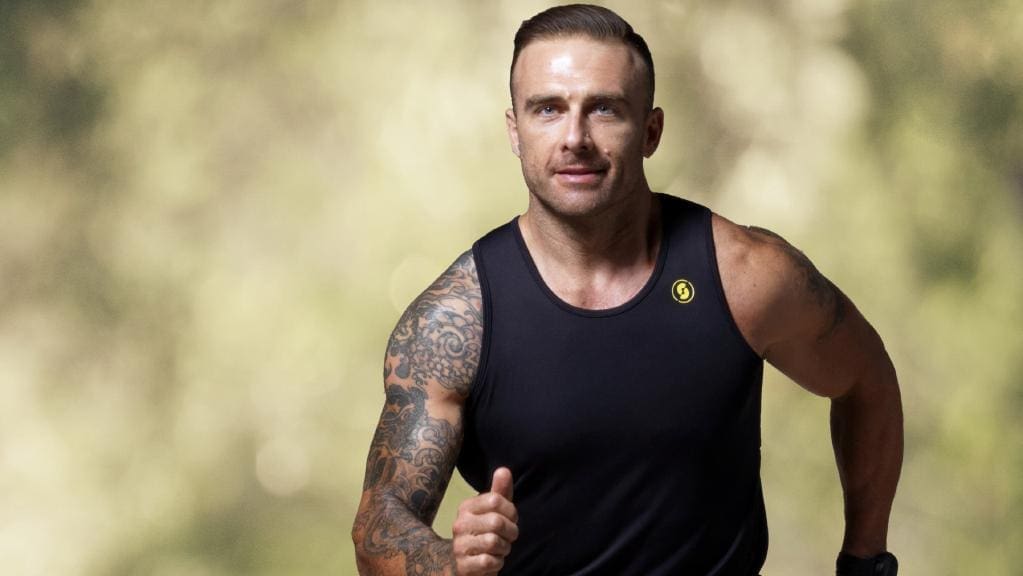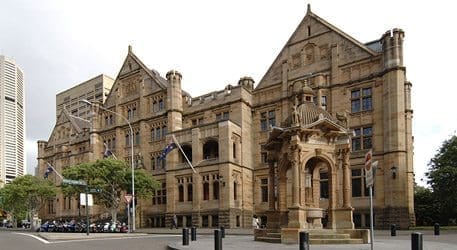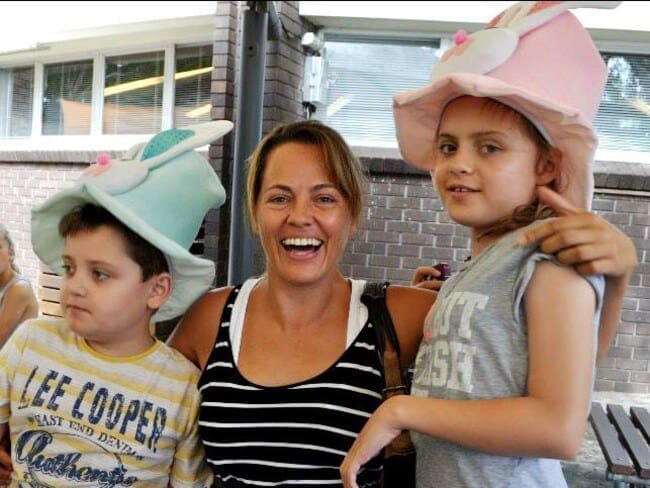
The Sage Institute, endorsed by the Steve “The Commando” Willis, has gone into Administration. Many would recognise the Institute’s name for their numerous advertisements on morning radio shows throughout Sydney.
The announcement of Administration has created an air of uncertainty, and not one as pleasant as butter and sage sauce. Centres have closed in both NSW and Queensland this week, leaving approximately 1600 students and 200 employees in the lurch. Many students had invested large sums of money and time into attaining certifications for prospective careers in the fitness, child care, aged care and massage therapy industries. Students are now being advised to pay outstanding fees before they can receive certification which allows them to transfer to other institutes to continue studying, following the announcer.
Students who enrolled in a Diploma of Early Childhood Education & Care were not advised of the impending collapse of the institute. Instead, they were able to sign up for “interest free loans” of up to $7,000 in addition to paying $500 upfront for textbooks and uniforms. Whether these students will receive reimbursements is unclear at this stage. Trainers and educators have also been affected, with some not paid in over 11 weeks.
What is Administration?
A company may be placed into Administration when it experiences financial difficulty. Directors can choose to do this voluntarily, or creditors will make arrangements for this to happen involuntarily.
Administration is carried out by an independent/qualified person who takes full control of the company. The aim is to try to work out the best way to save the company or its business. From here, the administrator will determine whether the company will:
- end Administration and return to the control of its directors,
- whether it will enter into a deed of company arrangement. This allows the company to pay all or part of its debts, or
- if it will be wound up and have a liquidator appointed.
Administrators for the Sage Institute, Ferrier Hodgson, have confirmed that “all employee entitlements will rank as priority unsecured claims” . Students have been advised to contact the Australian Council of Private Education and Training’s activations team on 1800 875 474.
If you have been affected by the Sage Institute or any other company’s Administration, please do not hesitate to contact our offices on 02 8917 8700 or fill out the enquiry box on and we will get back to you ASAP.
The livestream saga that breached copyright laws

Boxing is a sport loved by many across Australia and the world. Sharing that love would only be natural, right? However, this love of sharing has been counter-punched with a lawsuit for two boxing fans.
On 3 February 2017, Anthony Mundine v Danny Green weren’t the only ones throwing punches. Two Australian men, Brett Hevers and Darren Sharpe, livestreamed the grudge match on Facebook. This was obviously a suckerpunch to Foxtel's gut, who were charging its customers a fee of almost $60 to view the fight. Over 130,000 people tuned into the fight free on one of the men’s livestreams.
In a statement issued by Foxtel, the livestream by the men is considered “theft” and the media giant confirmed that it would be taking legal action against the two men. If found guilty, the pair could face fines of up to $60,000 or imprisonment up to 5 years.
The accusation was that the livestreamers breached copyright laws in Australia by illegally streaming paid content for free to others, despite a phone call from Foxtel’s representatives to cease the stream immediately. Shortly after the phone call, Foxtel “knocked out” the men’s services, as they were breaching their terms of use. Both men are yet to have their subscriptions reinstated.
Mr Hevers and Mr Sharpe have now issued public apologies to Foxtel via their Facebook pages and Foxtel has withdrawn its threat to take legal action. Over $60,000 raised through the pair's GoFundMe Page for legal fees has been donated to charity.
Make sure you are aware of your rights when streaming online content. If you feel that you have been wrongly targeted for copyright infringement, or wish to know more about this issue, please contact us on 02 8917 8700.

Knock-out deals are everywhere, and one kind of deal has become more popular than ever: bargain flights. Many airlines are selling both domestic and international flights at record-low prices with Tigerair recently offering domestic flights within Australia for just $9. It almost sounds too good to be true, so the question is, what’s the catch?
There are few important things to take into account when booking these flights. While conditions may vary across airlines, these bargain flights generally have a few things in common:
One-way Flights
While usually obvious, it is useful to note that airlines will commonly advertise one-way flight prices as they appear cheaper. Return flights will still be cheaper than normal during these sales but will be double the amount advertised, so don’t be fooled!
No Check-in Baggage
A common ‘catch’ with bargain flights is the exclusion of checked baggage. For a short domestic trip, this may not be an issue as most flights still allow the 7kg carry-on luggage. However, for longer international trips, 7kg carry-on and liquid restrictions may significantly hinder your holiday plans. All airlines allow you to purchase checked baggage but this may set you back anywhere between $10-$50 depending on the baggage weight, making that $9 flight a lot more expensive. Pre-purchasing checked baggage is better than purchasing at the airport as airlines tend to charge exorbitant amounts for excess baggage at the check-in counter.
No Name Changes
Bargain flight deals usually don’t last long and this could mean you purchase a few tickets just to have them before deciding later who you will actually be travelling with. The ‘catch’ here is that airlines will charge you for any changes you make to passenger details. When you are booking flights, you will need to enter all passenger details on the spot. Any future changes can incur costs of about $70.
No Seat Selections
When you choose to purchase a bargain flight, you will rarely be given a choice in seating. This means that a group booking may have split seating on the flight. If you insist on sitting together, airlines allow seat selections, but at a fee ranging from $5-$50.
No Full Refunds/Cancellations
Finally, bargain flights rarely offer full discounts. Most will charge an admin fee of around $50 to process the refund. For a $9 flight, this would be counterintuitive and it may be better off just to not catch the flight.
For a short fuss-free trip, bargain flights are a great deal and can save you lots of money that could be spent elsewhere on your trip. Any extra requests and changes however, can incur significant costs that mean your bargain flight is a bargain no longer. The bottom line is to always read the terms and conditions for each airline before booking, and be flexible about your in-flight experience!
Don't get caught mid-air. Contact Freedman & Gopalan Solicitors on 02 8917 8700 if your travel plans haven't worked out the way you expected because of a bargain flight.

Everyone loves a scoring a bargain and Airbnb has made this incredibly easy to do. Especially those of us looking to find cheap accommodation, rather than paying for a hotel.
However, whilst booking an Airbnb to stay in may be all good and fun, renting out your apartment for some spare cash on Airbnb is not always as fun.
There are obviously risks in renting out either your entire home, or part of your home. Whether It be worrying about tenants raiding your drawers, eating your cereal, or even annoying your poor cat, Bobby. But for those that don’t have such fears, Airbnb is a good way to make some small income without doing too much.
Recently, however, Airbnb has been subject to scrutiny thanks to the illegal subletting of properties.
What is Subletting?
Subletting is when you (as the original tenant) rent out all or part of your rental property making you the head-tenant. This means that you effectively become as legally responsible as a landlord. If you wish to sublet your property, you should always obtain written consent from your landlord. In most cases, unless there is a good enough reason, a landlord must give permission to sublet the property.
If its legal, why is it an issue on Airbnb?
If a tenant rents out your property on Airbnb, and proceeds to sublet the apartment to someone else they often do so at a profitable rate. This has obvious issues both legally and morally. For one, now you have to worry about several people raiding your drawers, eating your cereal and scaring your cat. Secondly, you could be liable for any issues that might occur on your property, which you have no control over. This means that should any of the subletting tenants injure themselves on your property, or have an accident that led to your home being damaged, you being the owner, would be liable. Furthermore, if something were to occur, then depending on your insurance policy, your insurance policy may become voided, and you will be left out to dry, whilst the tenants and sub-tenants get to walk free.
The main issue with this matter, is the reluctance of Airbnb to act upon the issue, meaning tenants are essentially on their own.
To avoid this from happening to your beloved home, your belongings and your pets, make sure to do your research. Check your strata bylaws if you are renting out your apartment for any clauses, and try keep into constant contact with your tenants.
If you think this may be happening on your property, be sure to check for listings on common accommodation and leasing websites such as Domain, realestate.com, stayz and of course, Airbnb.
If you believe someone is illegally sub-letting your property, or have a tenancy issue that you require assistance with contact us on 02 8917 8700 or fill out the enquiry box and we will get back to you ASAP..

Mid-last year, our ex-premier Mike Baird, along with now Premier Gladys Berejiklian announced plans for the possible privatisation of the LPI. This has large implications for not only Government, to all potential home buyers, current home buyers and renters.
What is the LPI?
Chances are if you have bought a property before, you would have dealt with the Land Property and Information Office. The LPI is what maintains the registry that defines ownership and boundaries of all private and public properties. When you purchase a new property, the LPI is the place where you search for all changes of ownership, mortgages, restrictions, leases and any other information pertaining to the property you are looking at. This means that the LPI holds extremely valuable information for the vast amounts of homeowners and those with interests in property.
What implications will this have?
The impact on individuals seeking to purchase, rent or sell property may be subject to profitable alternatives to the current system. If this happens, then whomever the government decides to sell the LPI to, may implement their own profit-driven titling system as a replacement for the current system.
Another issue of contention is that of privacy. As the LPI holds all property titles in NSW, privatisation would give unprecedented access to these titles, giving rise to the risk of possible exploitation. The current government run system is one of the most efficient in the world, is corruption-free and turns over $50 million in profit a year. The Audit trail associated with this system is a key tool used by public services, such as infrastructure, emergency or disaster responses. Should the private sectors either compromise on this documentation or wrongly use this information, there could be rippling effects across the entire property market with significant consequences for potential and current home buyers.
If you are looking to buy or sell your property or would simply like more information, contact us on 02 8917 8700 or fill out the enquiry box and we will get back to you ASAP.
The changes you need to know about.

The Sydney lockout laws have been a large issue of contention amongst Sydneysiders since its introduction in early 2014. Many argue the introduction of these laws have caused Sydney’s nightlife to stagnate and slowly die off, with small businesses hit the hardest. However, last week Mike Baird announced changes to the lockout laws.
A review since its introduction has made room for leniency in the strict 1:30am lockout and 3:00am last drinks. Under the direction of Premier Mike Baird, the following changes will be trialled for the next 2 years:
Small Venues:
- Maximum occupancy rate for small bars increased from 60 to 100 people
- Midnight closing time will now be extended to 2:00am.
These changes will come into place on 16 December 2016, just in time for the Christmas Party Season.
Medium to Large Venues:
Medium to Large Venues located in Kings Cross and the Sydney CBD Lockout Zone will have to wait until January 2017.
- 1:30am Lockout will now be extended until 2:00am
- 3:00am Last drinks will now be extended until 3:30am
- 10:00pm ban on Alcohol delivery will now be extended until 11:00pm
However, these changes will only apply to venues with live entertainment. Live entertainment venues will be determined in January, when venues apply to receive their classifications. However, what may be deemed as a live entertainment venue, is at discretion of the NSW government.
Another change affecting venue’s, is that of changes to liquor licensing rules. The burden is now on the licensee, and not the venue to ensure that rules are followed under the “three strikes” scheme this means that low-risk venues such as café’s or restaurants will be able to obtain a liquor license more easily.
As mentioned above, changes to medium to large venues do not come into effect until January 2017, meaning Christmas and New Year celebrations will still be subject to the current 1:30am Lockout and 3:00am last drinks.
To avoid being locked out this party season, make sure you know what changes will affect your venue of choice. If you come across any issues, or have been affected by the lockout laws or alcohol related violence, please contact Freedman & Gopalan Solicitors on 02 8917 8700 or fill out the enquiry box and we will get back to you ASAP.

We’ve all received the beloved gift card as a present at least once in our lives. Whether they’re spot on with your favourite store, or missed it completely, gift cards have become a staple present for all generations.
For those that receive cards that may not suit their tastes, they often become lost or forgotten in the deep dark corners of handbags or desks, causing millions of dollars to go to waste each year. Many retailers would simply not redeem your gift card after the expiry date, meaning the opportunity to buy that new barbecue for Christmas has now sizzled away.
Currently, only Westfield gift cards are able to be exchanged for an updated card in order to prolong the expiry date. Taking an expired gift card to the concierge desk to redeem for a new one is a great way to ensure that your gift cards don’t go to waste.
“Gift cards operate like a contract. After the expiry date, it is really at the whim of the trader whether they choose to honour the contract.”
Some retailers may still honour expired gift cards, but it is up to their discretion whether or not they will.
In October this year, the Honourable Victor Dominello, Minister for innovation and better regulation, encouraged consumers to use their expired gift cards, in a bid to push for indefinite expiry dates for gift cards.
Some states in the US have banned or restricted expiry dates on gift cards, and hopefully Australia will follow soon.
The results of a survey being conducted in regards to gift card expiry dates will determine whether regulatory change is needed in the area. The survey can be found at Fair Trading.
Make sure you are aware of your rights when redeeming gift cards. If you feel that you have been wrongly denied the use of a gift card, or wish to know more about this issue, contact Freedman & Gopalan Solicitors on 02 8917 8700 or fill out the enquiry box and we will get back to you ASAP.

Australia is well-known for its culture of social drinking, and in particular, binge-drinking. Despite the known health risks associated with drinking at a young age, underage drinking is unfortunately, quite a common occurrence. Contrary to common belief, Australia does not actually have a ‘legal drinking age’ as such. While people under the age of 18 are not allowed to buy, sell, possess or drink alcohol in public areas or on licensed premises, there are no laws preventing a minor from drinking in a private home. This does not mean that there are no penalties that can be issued as society still aims to prevent and deter the occurrence of underage drinking, but it does beg the question of who is ultimately responsible.
At Licensed Venues
Underage drinking in a licensed venue is illegal under s119 and s129 of the Liquor Act 2007 (NSW) and a licensee can incur any of the following penalties:
- An on-the-spot fine of $1100
- A court imposed fine of up to $11 000 and/or 12 months imprisonment
- Suspension or cancellation the venue’s liquor licence
These penalties are also applicable to any person who attempts to obtain alcohol at the licensed premises on behalf of the minor and without the minor’s parent or guardian’s permission.
In a situation where a parent or guardian is accompanying a minor at a licensed venue, they have a legal responsibility to prevent the minor from consuming alcohol. If a parent/guardian allows a minor to consume alcohol at a licensed venue, they can incur any of the following penalties:
- An on-the-spot fine of $330
- A court imposed fine of $3300
Thus in situation of underage drinking at a licensed venue, both the licensee and the parent/guardian can be held responsible.
On Unlicensed Premises
Often minors will source alcohol through secondary supply, however this is only legal if supplied by the minor’s parents/guardians, people authorised by the parent/guardian, or people who have parental rights and responsibilities for the minor. The supply of alcohol to a minor on an unlicensed premise by anyone other than those aforementioned can also incur the following penalties:
- An on-the-spot fine of $1100
- A court imposed fine of up to $11 000 and/or 12 months imprisonment
- Suspension or cancellation the venue’s liquor licence
But I Said Its Okay?
While it is not illegal for a parent/guardian to supply their minor with alcohol on a private premises, the supply and consumption must occur in their presence and under responsible supervision, as stipulated by s118 Liquor Act 2007 (NSW). The courts consider a number of factors when determining whether responsible supervision of a minor was given in such a circumstance. These include:
- The age of the child
- Whether the parent, guardian or authorised person was intoxicated
- Whether the child was consuming food with the alcohol
- The quantity and type of alcohol
- The time period over which it was supplied
Penalties can be issued when alcohol is supplied in a manner not consistent with the responsible supervision of the minor, or to a minor who is intoxicated. These include:
- An on-the-spot fine of $1100
- A court imposed fine of up to $11 000 and/or 12 months imprisonment
- Suspension or cancellation the venue’s liquor licence
It is interesting to note that it is also illegal for an adult to send a minor to obtain alcohol on their behalf, even if the minor is not intending to consume it.
Thus, it is clear that in circumstances of inappropriate underage drinking, the law holds those with authority and responsibility ultimately accountable. An environment where underage drinking is legal and appropriate is quite narrow so the safest option will always be to discourage any form of underage drinking which will simultaneously avoid any health risks.
Make sure you are aware this party season. Contact Freedman & Gopalan Solicitors on 02 8917 8700 if you have been involved in an underage drinking offence, or wish to know more about this issue

In light of the recent apparent murder-suicide of a Sydney family in the Northern Beaches, interest has arisen in regards to who is responsible for these crimes. In a murder-suicide case, as the accused has committed suicide, a predicament arises concerning whether or not the Crown has a case against the accused and whether the accused is legally responsible for the murder of the other deceased.
In NSW, it is no longer a crime for a person to commit, or attempt to commit, suicide, in accordance with s 31A Crimes Act 1900 (NSW). It is interesting to note however, that it is still an offence to counsel, incite, aid or abet another to commit, or attempt to commit suicide. While a tragic occurrence, this means that an act of suicide no longer results in charges or convictions of murder or manslaughter.
Legally, homicide is a crime that can be charged, in accordance with Division 1, Part 3 of Crimes Act 1900 (NSW), either under murder or manslaughter. A conviction of murder requires both the act which caused death and, intent or recklessness indifference to human life, while the less severe conviction of manslaughter only requires the physical element of act causing death. As homicide falls under the criminal jurisdiction, all cases are brought forward by the State or the Crown. This means that criminal convictions are only possible if an accused person is alive. If an accused is deceased, there is no longer a defendant to prosecute and any pending charges are dismissed. In a murder-suicide case, this means that no one is legally responsible for the murders of the deceased.
It is interesting to consider the outcome of the charges if the attempt of suicide is unsuccessful. In suicide pact cases, survivors are not guilty of murder or manslaughter but may be guilty of aiding or abetting the suicide under s 31B and s 31C of the Act. In murder-suicide cases however, a survivor can be charged with murder as there is no common agreement to take part in causing death to the group as there is in a suicide pact, which removes the liability of murder or manslaughter from survivors.
Several defences include the defence of mental illness and the defence of substantial impairment by abnormality of mind (SIAM).
Despite the unfortunate circumstances the survivor of a murder-suicide faces, it is possible that they can be convicted of murder or manslaughter, and thus are legally responsible for the death of the deceased. Where no survivor exists, no one is legally responsible and the case is thus, dismissed.
If you or someone you love are struggling with issues related to mental health, contact the Lifeline to speak to someone one-on-one, 24/7 on 13 11 14.
If you have any questions about the Crimes Act NSW or wish to speak to a solicitor, please do not hesitate to contact us on 02 8917 8700.
